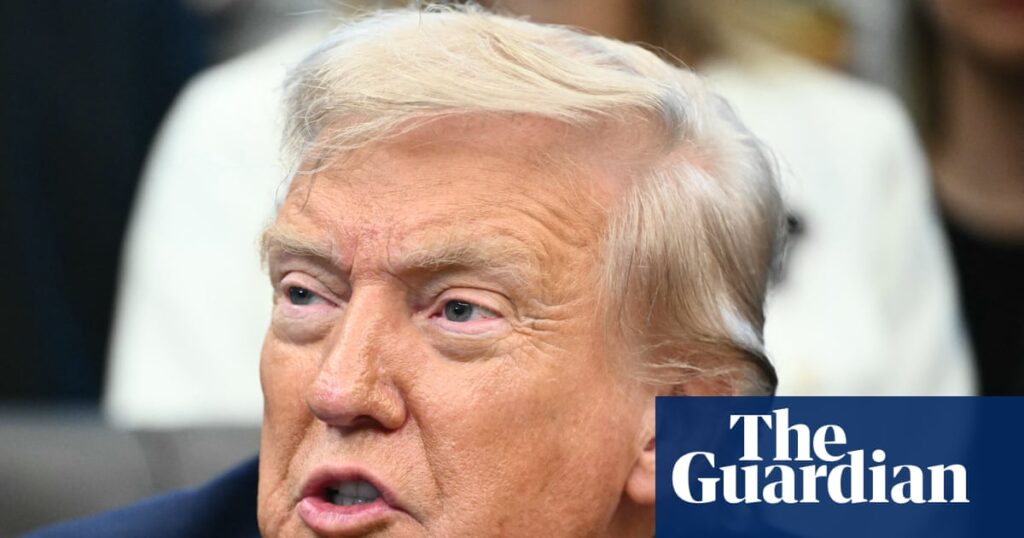
Donald Trump has issued a stern warning to countries implementing taxes and regulations perceived to target U.S. technology giants. In a recent post on his social media platform, Truth Social, Trump declared that tariffs and export restrictions could be imposed on nations whose policies are seen as discriminatory against American companies like Google, Meta, Amazon, and Apple.
Trump’s statement specifically criticized digital taxes and regulations, which he claims are designed to harm American technology. He cited the United Kingdom’s digital services tax, which generates approximately £800 million annually from global tech companies through a 2% levy on revenues, as an example of such measures. Trump argued that these policies unfairly exempt China’s largest tech firms from similar scrutiny.
“As the president of the United States, I will stand up to countries that attack our incredible American tech companies,” Trump asserted. “Unless these discriminatory actions are removed, I, as president of the United States, will impose substantial additional tariffs on that country’s exports to the USA, and institute export restrictions on our highly protected technology and chips.”
Impact on International Relations
The threat has placed additional pressure on the UK and the European Union, both of which have enacted regulations aimed at curbing the influence of major tech companies. The EU’s Digital Services Act is a significant component of these efforts. Several EU member states, including France, Italy, and Spain, have also introduced digital services taxes.
The U.S. government has been vocal in its criticism of the UK’s digital services tax (DST), which has been in place since 2020. Despite reaching a trade agreement with the Trump administration in May, the UK maintained the tax. Trump’s administration has consistently expressed concerns about the impact of such taxes on American companies.
“America, and American technology companies, are neither the ‘piggy bank’ nor the ‘doormat’ of the world any longer,” Trump stated. “Show respect to America and our amazing tech companies or consider the consequences.”
Historical Context and Recent Developments
Trump’s latest warning follows a series of actions aimed at defending U.S. tech interests abroad. In February, he issued an executive order titled “Defending American Companies and Innovators from Overseas Extortion and Unfair Fines and Penalties,” threatening retaliatory tariffs. In April, it was revealed that UK Labour leader Keir Starmer had offered to reduce the DST for U.S. tech companies in an attempt to appease Trump, while maintaining the levy for other nations.
The announcement comes shortly after a joint statement by the U.S. and the EU, where both parties agreed to address “unjustified trade barriers” together. However, the EU clarified that it had not committed to altering any digital regulations. Meanwhile, Canada recently decided to scrap its digital services tax, which Trump had labeled a “direct and blatant” attack, in an effort to facilitate smoother trade negotiations with the U.S.
Expert Opinions and Future Implications
Experts suggest that Trump’s aggressive stance could lead to increased tensions in international trade relations. “The imposition of tariffs could provoke retaliatory measures from affected countries, potentially leading to a trade war,” said Dr. Emily Carter, an international trade analyst. “Such a scenario could have significant implications for global markets and the tech industry.”
While some analysts believe Trump’s threats are primarily a negotiating tactic, others warn that the potential for real economic consequences should not be underestimated. The move represents a continuation of Trump’s “America First” policy, prioritizing U.S. interests in global trade discussions.
As the situation develops, stakeholders in the tech industry and international trade will be closely monitoring the responses of affected countries. The potential for escalated trade tensions underscores the complex dynamics of global digital taxation and regulation.
Looking ahead, the international community may seek to negotiate new agreements or revise existing policies to address the concerns raised by the U.S. administration. The outcome of these discussions could shape the future landscape of global tech regulation and trade.







